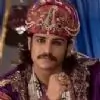Originally posted by: rinall
A BIG to all !! 😃
Abhay, Kaana, Sandhya and everyone who's reading this 😉😆
I have 2 questions which have been troubling me since long 😕 I'd really appreciate if someone answers them 😳😊 So here they are--
1) Why was Akbar called Shahenshah-e-Hind ?? 😕 South India is and was always a part of Hindustan na...and Akbar didn't see much success in South India 😕😕 So why did he get that title ?
2)Why on earth was he called Akbar-The Great ?? 😲😲😲
Ok Ok, after reading the discussions here, I understand that he was accorded that title 'cause of his reforms... So my actual question is
"WHO gave him that title ?"
I mean how could everyone forget the Chittore massacre so easily ?? 😭 Akbar may have done wonderful things later in his life, but the brutal massacre can neither be forgotten nor forgiven, right 😳
Rinal,
a. Akbar was his name only. It was not a title. He was called Akbar since his birth. Read this post :
http://mariam-uz-zamani.blogspot.in/2014/09/real-date-of-birth-of-akbar-was-akbar-a-title.htmlb. He was hailed as a great by British historians who came to India after Mughals and ruled us. They were in awe of AKbar as they felt he was a Muslim ruler who went on going against his religion and did not follow the conventions. These things are called as his "reforms" , as we know.
Another thing was that, British used his administrative measures in India. So, they studied Akbar and wrote about him. If you want to get a glimpse of what and why they wrote about Akbar as great, then read this post...
Though i made this post for some other reason, but this gives a glimpse of why they thought Akbar as great..It contains his reforms..
http://mariam-uz-zamani.blogspot.in/2014/09/akbar-and-his-favorite-rajput-wife.htmlAfter reading this post, ^^^ you will see that, they did not focus on his "other" side, as you are asking about Chittor etc... They studied his reforms and other measures and called him great.
I am just explaining what they thought. They had interest only in knowing about his reforms and hence they studied them only.. That is the reason, NOW, a lot of "debate and articles" have been coming about this issue, as people want to discuss his other side as well..
Will add more points as and when they come in my mind.
























